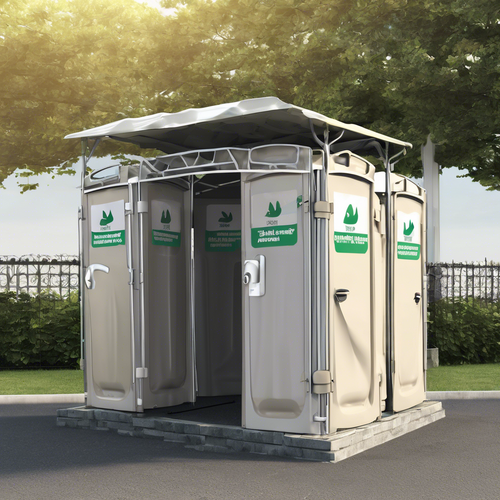The Regulations Behind Portable Toilet Waste Disposal in Miami-Dade County
In the bustling environment of Miami-Dade County, portable toilets are more than just a convenience; they are a critical aspect of public health and sanitation, especially during large events, construction jobs, and emergency situations. However, with this essential service comes the responsibility of adhering to strict regulations governing waste disposal, designed to protect the environment and public health. 🌍
Understanding these regulations is crucial for contractors, event organizers, and service providers to ensure compliance and maintain community standards. The fallout from improper disposal can lead to severe environmental repercussions, and hefty fines, not to mention the public backlash against offending parties.
Miami-Dade County’s Regulatory Framework
The Miami-Dade County Department of Regulatory and Economic Resources oversees health and sanitation standards, including the use of portable toilets. Waste management regulations are primarily outlined in the Miami-Dade County Code, specifically dealing with waste disposal and environmental protection. Here’s what you need to know:
- Permitting Requirements: Before deploying portable toilets, contractors must secure permits from the local authorities. This includes specifying the number of units needed, their location, and intended duration of service.
- Approved Disposal Facilities: Waste generated from portable toilets must be disposed of at certified wastewater treatment facilities. Miami-Dade County mandates that these sites meet environmental safety standards to process black water effectively.
- Regular Maintenance Standards: Contracted service providers are legally required to maintain units regularly. This includes frequent servicing intervals along with routine cleaning and sanitation to prevent foul odors and health hazards.
- Environmental Protections: The regulations require measures to prevent spills and leaks during transport and disposal, ensuring that hazardous waste does not contaminate local ecosystems. 🦠
The Importance of Compliance
Adhering strictly to these regulations is not merely about following the law; it reflects a commitment to community health and environmental sustainability. Non-compliance can result in severe penalties, including:
- Fines and Legal Action: Violators may face substantial fines, legal fees, and in some cases, may be banned from performing further services in the county.
- Damage to Reputation: Companies found in violation risk losing credibility and trust among clientele and local communities. This could impact future contracts and business opportunities.
- Environmental Impact: Improper waste disposal can contribute to pollution of waterways and public spaces, posing risks to wildlife and recreational areas. 🌊
Best Practices for Portable Toilet Waste Disposal
In light of regulatory demands, best practices can help ensure that service providers and users align with local standards:
Service Frequency: Providers should establish a routine servicing schedule for maintenance and waste removal that meets or exceeds state recommendations.
Location Considerations: Units should be strategically placed to minimize odor issues and ease access for servicing while adhering to local zoning laws.
Education and Transparency: Service providers can help clients understand the importance of using compliant waste disposal methods and the principles behind eco-friendly practices.
Community Engagement and Awareness
Miami-Dade County emphasizes community involvement in sanitation issues, urging citizens to report any irregularities such as overfilled units or improper waste disposal. By creating awareness and channels for communication, residents can play a pivotal role in upholding sanitation standards. In addition to reporting issues, community volunteers can participate in organized clean-up events, reinforcing the collective responsibility towards maintaining a clean and healthy environment. 📢
The Future of Portable Waste Management in Miami-Dade
As Miami-Dade continues to grow, the challenges surrounding sanitation and waste disposal are likely to evolve. Innovations in portable toilet designs, waste treatment technologies, and sustainable practices will play vital roles in future compliance and environmental protection.
«Our community’s health hinges on both compliance and collective awareness in waste management. As we look to the future, we must embrace innovation without sacrificing our environmental obligations,» notes Maria Lopez, a Public Health Officer for Miami-Dade County.
Understanding and adhering to the regulations surrounding portable toilet waste disposal is no simple task, yet it is crucial for maintaining public health standards and protecting the environment. As Miami-Dade County strives for a cleaner and healthier community, every participant in this process has a role to play. From policymakers to service providers, the commitment to responsible waste disposal is a shared responsibility that ensures the flourishing of our great city. 🌟
